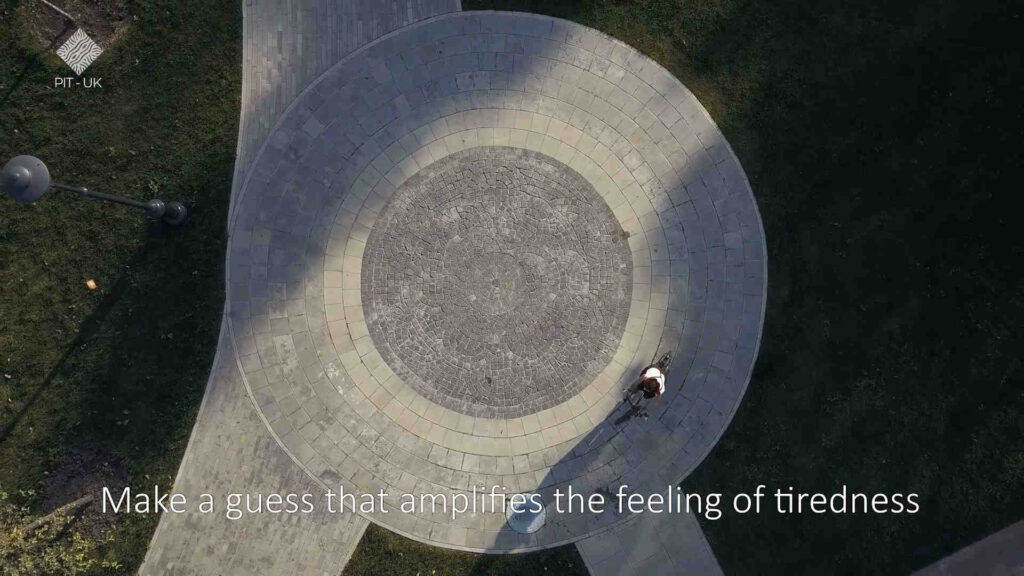This model of Psychotherapy starts with a key idea that Bob Hobson introduced us to over forty years ago. With Russell Meares, he described psychotherapy as a Conversation – finding a language that fits the two persons – to shape a common feeling language leading towards a shared understanding. From that shared meaning there is a possibility of moving forward to allow change.
These films help to develop this ability to have a meaningful conversation- which we all have as humans- freeing our imagination to work alongside the other person to help develop this shared feeling language.
Bob Hobson described this understanding as “Forms of Feeling”
– he was talking about how to develop our innate ability to think in symbols and connections until there is a sense of “fit” that makes sense to the person we are working with.
Like many a great idea it is easier said than done!
There are two series of films: The “Cases” series which looks at how therapy works in practice with just a brief introduction to the skills used.
The second series is called The Minute Particulars to reflect the detailed skills need as described below. The films are available to members of PIT-UK but there is also a sample to give you an idea of what the films are about.
All films are copyright to PIT-UK LTD. All rights reserved © PIT-UK LTD 2019-2023
If you are not yet a member and wish to enquire about membership:
You can find out more about becoming a member here
Sample film
You do not have to be a member to see this sample video- it is drawn from the Introduction to PIT video and shows a brief introduction to the “Cases” series and a brief introduction to the different skills used in PIT
The Cases series of films
PIT an introduction
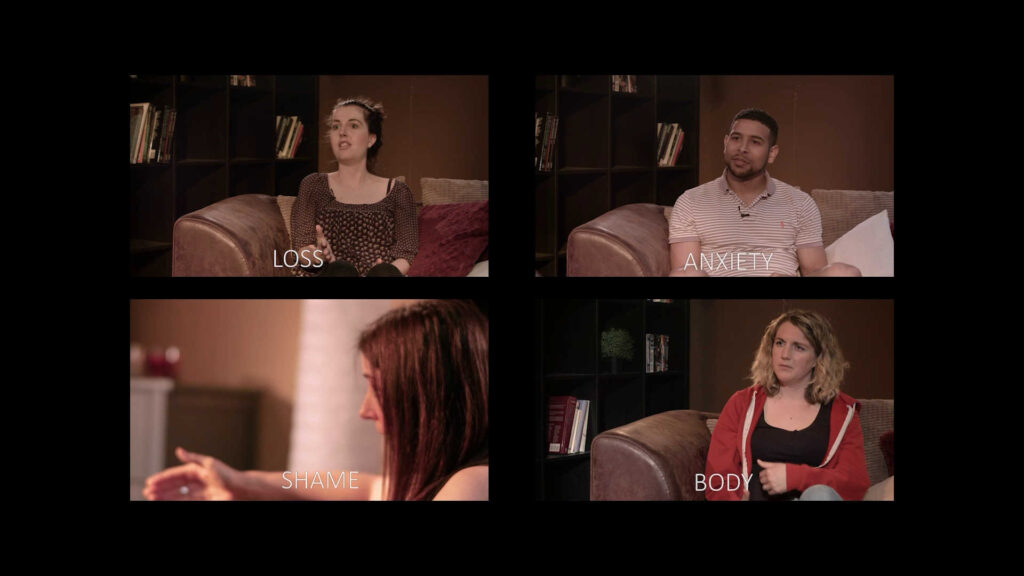
The first film introduces the four “cases”, then summarises the different skills in PIT and at the end there is an longer role play about bringing it all together.
Loss
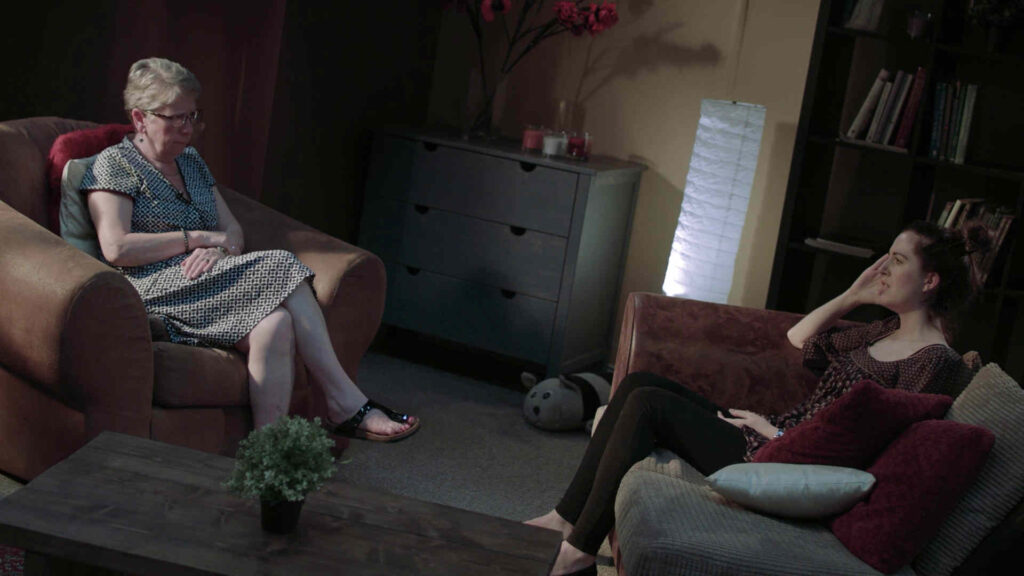
We start with a very powerful session of a young woman grieving for the loss of her young child.
Mary the therapist is working with Alex.
We hear how grief for this terrible loss of a child is blocked because she cannot bear to think of how this experience links with a key loss earlier in her life – the therapist is working with some almost unbearable feelings of loss.
Anxiety
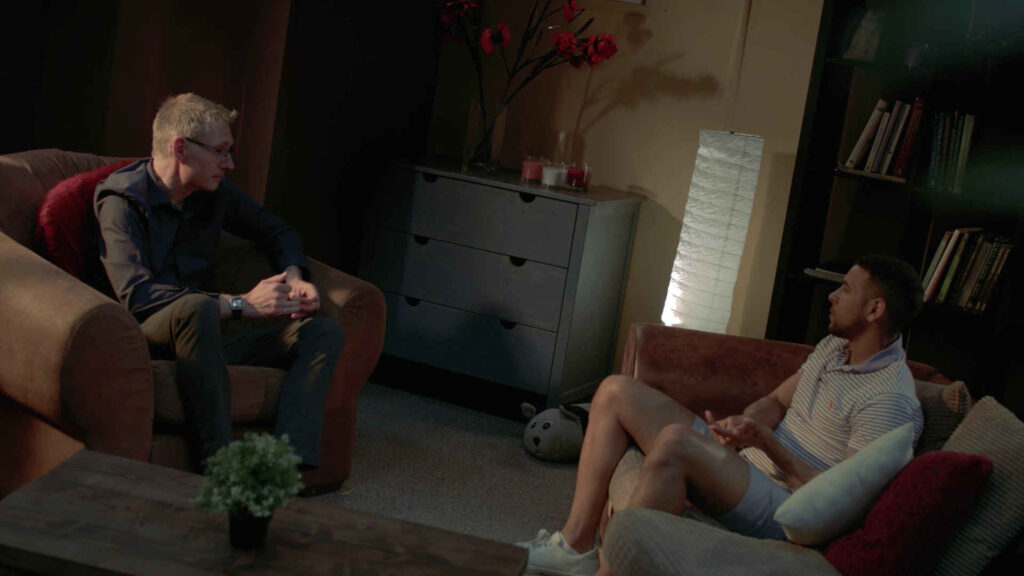
Sometimes a person we are working with feels unbearably alone and cut off, and however hard the therapist tries it is difficult to feel connected.
The therapist here, Richard, is working with Eddie. The therapist is having to work incredibly hard to edge towards a shared understanding – but he feels blocked at every turn. He persists in trying to understand how stuck and alone this person feels and there are moments of conversation, but the main theme of the film is how anxiety can be so high that true conversation is difficult to achieve.
Shame
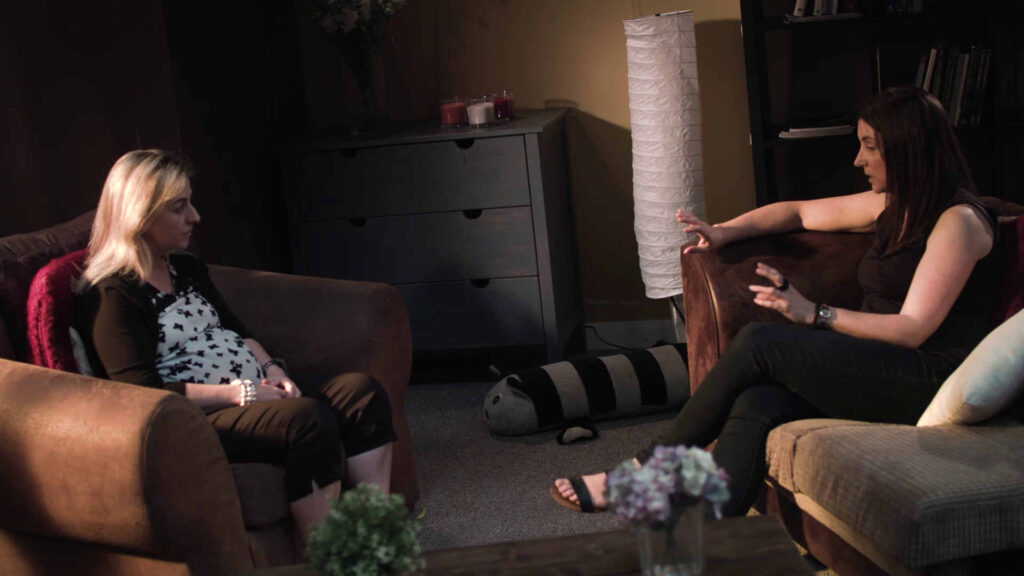
This film shows some deeply buried fears about losing control – expressed here as an eating problem. Sheena the therapist is working with Sam.
Sam is a pharmacist struggling with immense family expectations and terrified that the therapist may get close to knowing how eating is an overwhelming problem for her. The therapist is trying to stay with the distress Sam feels but is aware that she feels intense shame about sharing a hidden part of her life.
The Body
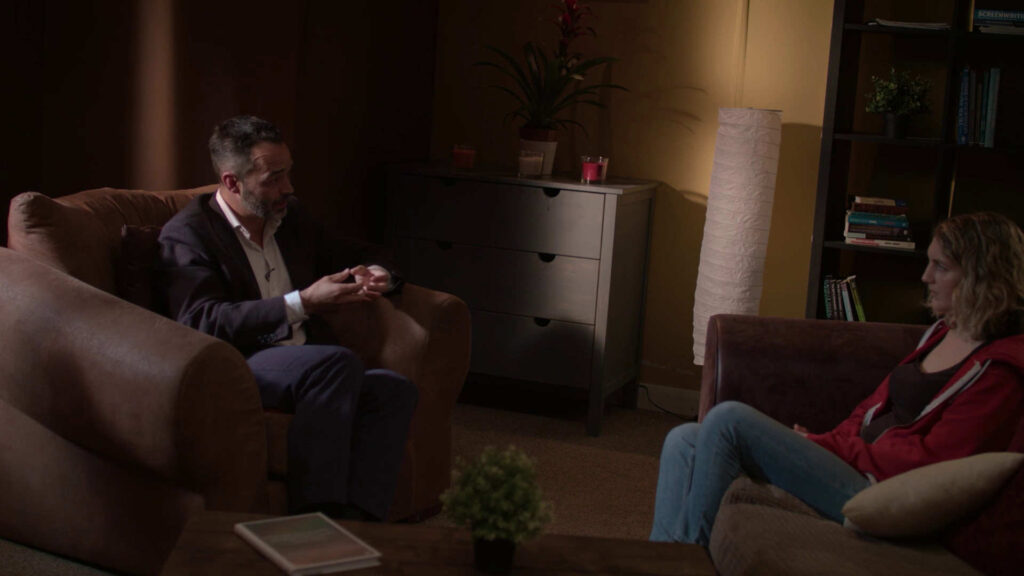
This film deals with feelings linked to the body. Simon is working with Chris- a woman who has felt unable to share her awful stomach pains with anyone without feeling completely on her own- this session looks at some tentative steps towards helping to make a link between the very real physical pain and her emotional pain.
The Minute Particulars series of films
Hobson borrowed an idea from William Blake of “Minute Particulars”- being sensitive to subtle nuances of gaze or inflection to help shape this shared understanding. You can watch these in action in the “Cases” films, and in this series we build up the ability to converse while paying attention to “The Minute Particulars”
He who would do good to another must do it in Minute Particulars: general Good is the plea of the scoundrel, hypocrite, and flatterer, for Art and Science cannot exist but in minutely organized Particulars.
William Blake
Perhaps most important in the context of these videos is the importance of practise and these films build in opportunities to try out and practise the various skills.
Introductory skills
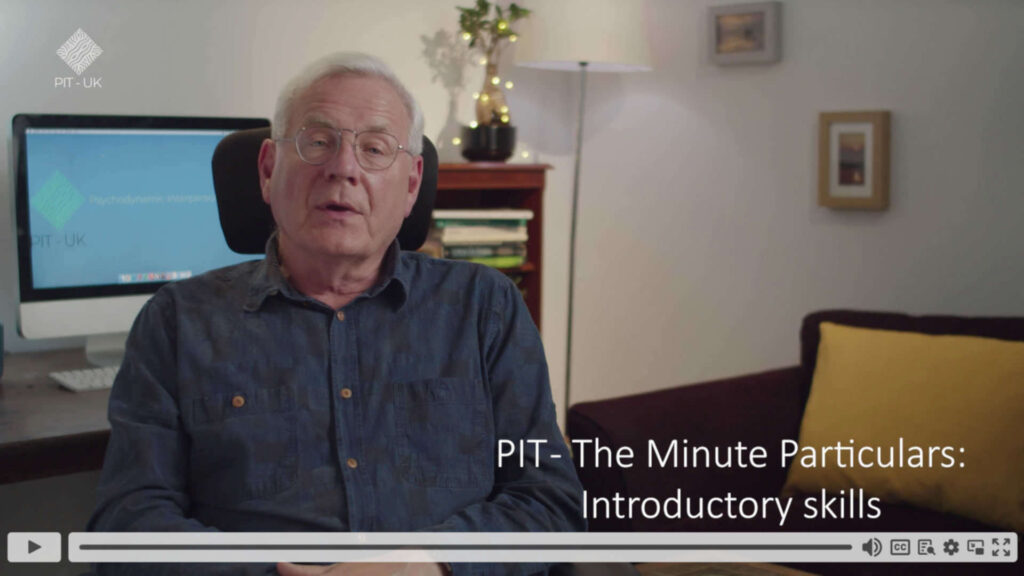
The first Minute Particulars film is on INTRODUCTORY SKILLS
It starts with the basic ideas of how to start an interview and then works through
• Using statements
• Picking up cues
• Negotiation
• Understanding Hypotheses
Intermediate skills
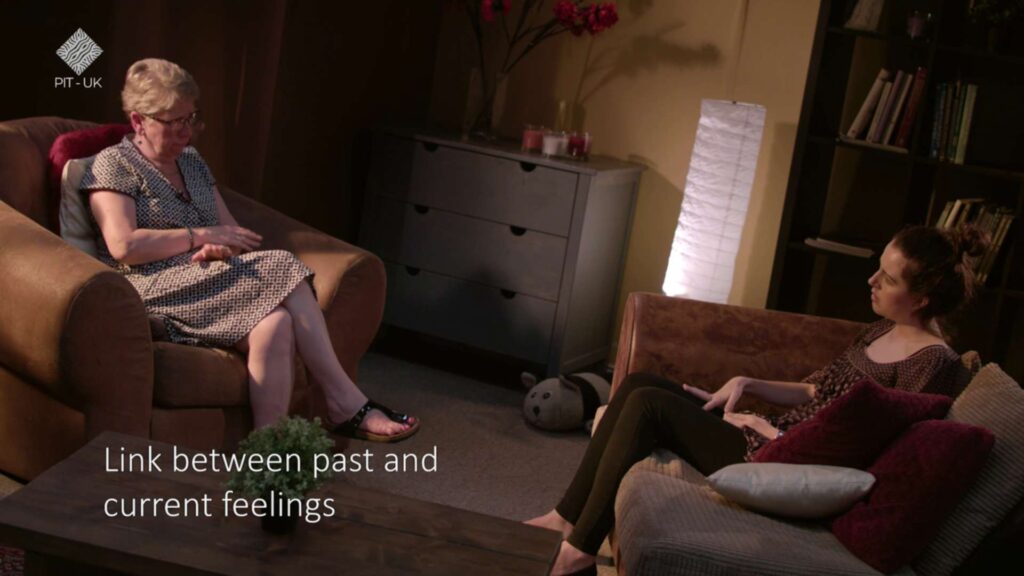
The second film in the Minute Particulars series covers INTERMEDIATE skills
- Focusing on feelings
- Metaphors and living symbols
- A language of mutuality (Using “I” and “We”)
- Using linking hypotheses
Advanced skills
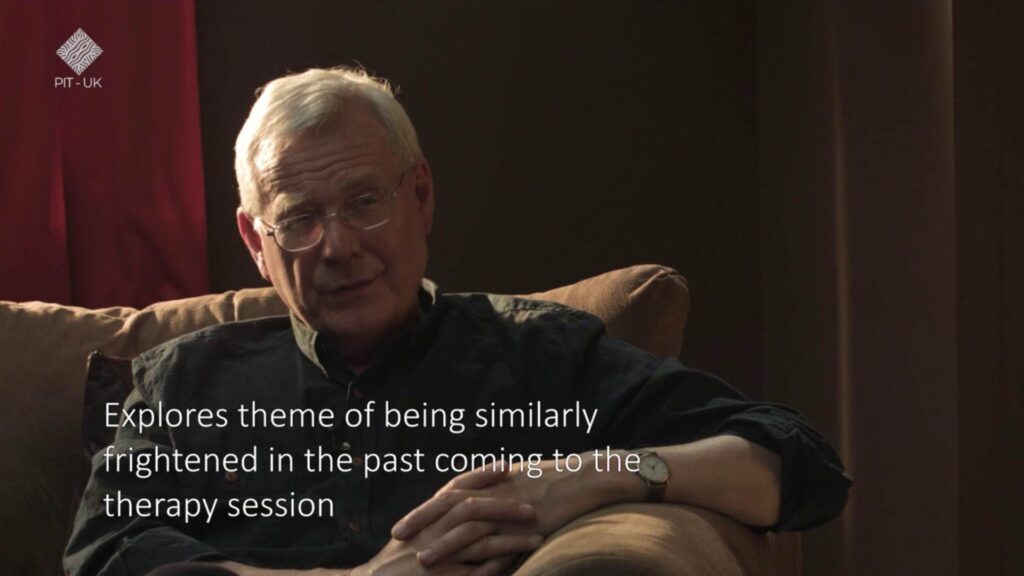
The final film in this series brings in ADVANCED skills
- Explanatory hypotheses
- Giving the rationale for PI therapy
- Sequencing interventions
- Relating interpersonal change to therapy
- Patterns in relationships
Practising the skills
But there is not much point learning skills if we cannot put them to use, so each film includes practice examples where you can try out the different ideas. When a symbol appears like this you will be prompted to say what you imagine the therapist might say at that point.
